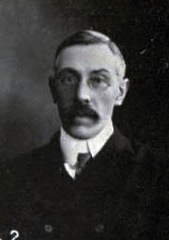Related Research Articles

The Government of the Hong Kong Special Administrative Region, commonly known as the Hong Kong Government or HKSAR Government, is the executive authorities of Hong Kong. It was formed on 1 July 1997 in accordance with the Sino-British Joint Declaration of 1983, an international treaty lodged at the United Nations. This government replaced the former British Hong Kong Government (1842–1997). The Chief Executive and the principal officials, nominated by the chief executive, are appointed by the State Council of the People's Republic of China. The Government Secretariat is headed by the Chief Secretary of Hong Kong, who is the most senior principal official of the Government. The Chief Secretary and the other secretaries jointly oversee the administration of Hong Kong, give advice to the Chief Executive as members of the Executive Council, and are accountable for their actions and policies to the Chief Executive and the Legislative Council.

The Independent Commission Against Corruption is the statutory independent anti-corruption body of Hong Kong with the primary objective of combating corruption in both the public and private sectors. Established in 1974 and operating independently from the Hong Kong government and law enforcement agencies, the ICAC is headed by the Commissioner, who reports directly to the Chief Executive of Hong Kong. The ICAC has played a crucial role in maintaining Hong Kong's reputation as one of the least corrupt places globally and fostering a culture of integrity within the city.
Property management is the operation, control, maintenance, and oversight of real estate and physical property. This can include residential, commercial, and land real estate. Management indicates the need for real estate to be cared for and monitored, with accountability for and attention to its useful life and condition. This is much akin to the role of management in any business.
This article gives detailed information on the employment situation in Hong Kong.

The Hospital Authority is a statutory body managing all the government hospitals and institutes in Hong Kong. It is under the governance of its board and is under the monitor of the Secretary for Health of the Hong Kong Government. Its chairman is Henry Fan.

The Hong Kong Science and Technology Parks Corporation (HKSTP) is a public corporation set up by the Hong Kong Government in 2001 to foster innovation and technology development in Hong Kong
The Inland Revenue Department (IRD) is the Hong Kong government department responsible for collecting taxes and duties.

The Education functional constituency, formerly called Teaching from 1985 to 1995, is a functional constituency in the elections for the Legislative Council of Hong Kong. It was one of the 12 functional constituency seats created for the 1985 Legislative Council election. Since 1998, It has been the functional constituency with the most registered voters, including registered teachers, principals, managers of schools, full-time academic staff, members of the councils of the universities in Hong Kong and board of governors of the institutes of higher educations. In 2020, it had 85,698 registered voters, as compared to the Finance constituency who had only 121 voters.
John Joseph Francis KC was a senior counsel in British Colony of Hong Kong and the first elected member of the Sanitary Board.

The 1903 Hong Kong Sanitary Board election was held on 25 March 1903 was the second election for the two unofficial seats in the Sanitary Board of Hong Kong under the reconstituted Public Health and Building Ordinance of 1903.

The 1906 Hong Kong Sanitary Board election was supposed to be held on 22 January 1906 for the two unofficial seats in the Sanitary Board of Hong Kong.

The 1909 Hong Kong Sanitary Board election was held on 20 January 1909 was an election for the two unofficial seats in the Sanitary Board of Hong Kong. It was the first election with more than two contestants since the 1903 election.

A plebiscite on whether the Sanitary Board should have an official or unofficial majority was held in Hong Kong in June 1896. It was the only plebiscite conducted by the Hong Kong Government on record. The other de facto referendum launched by the pro-democracy camp through the by-election in 2010 was not officially recognised.

The Peak District Reservation Ordinance 1904, originally enacted as the Hill District Reservation Ordinance, is commonly called the Peak Reservation Ordinance and was a zoning law that reserved most of the Victoria Peak as a place of residence to non-Chinese people except with the consent of the Governor-in-Council. The law was in force from 1904 to 1930 where the deadly Third Pandemic of Bubonic plague took place in China, causing 100,000 deaths, and enormous number of Chinese influxed into Hong Kong, causing the 1894 Hong Kong plague. Contemporary historians’ views toward the Ordinance vary, with some attributing the Ordinance to health segregation, whereas others attribute it to social status segregation. The debate on the second reading of the Bill is recorded in the Hong Kong Hansard, which shows that the two Chinese members, Ho Kai and Wei Yuk, did not oppose the Bill but a minority of the "leading Chinese" in the community were against it.
John David Humphreys was an English merchant, chemist and druggist in Hong Kong. He was general manager of the A. S. Watson & Co., Ltd. and member of the Sanitary Board.

Edbert Ansgar Hewett, was a prominent British merchant in Hong Kong and China and member of the Executive Council and Legislative Council of Hong Kong.

Augustus Shelton Hooper was a Hong Kong English civil servant, architect, member of the Sanitary Board and Licensing Board, and secretary of the Hongkong Land Investment and Agency Co. Limited.
Dr. Gerard Hall Lloyd Fitzwilliams, M.D., Ch.B., F.R.C.S., EDIN. was a British physician worked in Hong Kong and a spy in Russia.
The Li family are a banking dynasty in Hong Kong and associated with the Bank of East Asia, although its family members have held positions in various other businesses, as well as the Hong Kong Government, the Hong Kong Judiciary, and the Hong Kong Legislative Council. While the Li family spans many generations and has many members, this page only includes those who were directly involved with the running of the Bank of East Asia. The "first generation" refers to the generation that founded the Bank.

The 1894 Hong Kong plague, part of the third plague pandemic, was a major outbreak of the bubonic plague in Hong Kong. While the plague was harshest in 1894, it returned annually between 1895 and 1929, and killed over 20,000 in total, with a fatality rate of more than 93%. The plague was a major turning point in the history of colonial Hong Kong, as it forced the colonial government to reexamine its policy towards the Chinese community, and invest in the wellbeing of the Chinese.
References
- ↑ "The Hongkong Government Gazette" (PDF). 7 November 1891. p. 1013.
- ↑ "Jurors List for 1905" (PDF).
- ↑ "Report of the Commission Appointed by His Excellency the Governor to Enquiry into and Report on the Administration of the Sanitary and Building Regulations Exacted by the Public Heatlth and Buildings Ordinance 1903, and the Existence of Corruption Among the Officials Charged with the Administration of the Aforesaid Regulations" (PDF).
- ↑ "MESSRS A. S. WATSON & CO. LTD". Hong Kong Daily Press. 22 February 1933. p. 6.